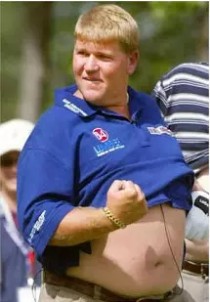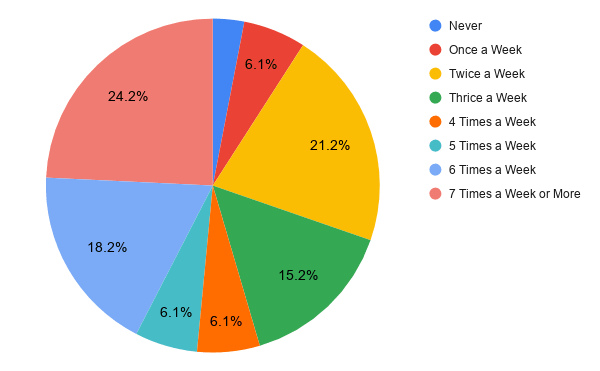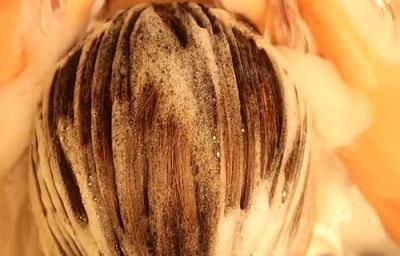I think that obese men are slightly less likely to be bald than people of lower or normal weight. My guess for this is due to the favorable scalp hair growth effects of extra estrogen and lower testosterone in obese individuals.
When I wrote this post, I ran a poll and only 26 percent of people agreed with my hypothesis. Another 31 percent were unsure. The second half of this post is from 2017 and has those details. The first half is an update with new findings that contradict my hypothesis.
Obesity and Increased Hair Loss
Earlier today, Dr. David Sinclair posted a link to an interesting new Japanese study titled: “Obesity accelerates hair thinning by stem cell-centric converging mechanisms.” Apparently, obesity-induced stress targets hair follicle stem cells (HFSCs) to accelerate hair thinning. Excess body fat induces stem cell inflammatory signals which accelerate the miniaturization of mini-organs and repress regeneration. Obesity also leads to marked inhibition of Sonic hedgehog (SHH) signaling.
Moreover, a 2014 study from Taiwan concluded that a higher body mass index (BMI) was associated with a greater severity of androgenetic alopecia (AGA). However, in this particular case, the findings only pertained to those who already suffered from AGA. There was no proof that obesity could actually spur the onset of hair loss.
Do note that obesity due to excessive food intake likely has different hormonal effects in comparison to obesity due to excessive alcohol intake. And obesity due to existing thyroid or pituitary gland related hormonal disorders is also very different.
Despite the above new Japanese study, I am still not convinced. The hormone altering modern diet and lifestyle is likely more of an issue in causing rising rates of balding around the world. Rather than just actual weight gain. But my opinion and guessing does not mean much of course.
High Body Mass Index and Better Hair?
May 13, 2017
Last week, a new study from Germany concluded that short men are more likely to go bald prematurely (i.e., at an earlier age). This was very surprising to me, since I never noticed any strong correlation between height and scalp hair quantity in real life. The same study also alluded to the fact that “white men in particular lose their hair prematurely”. Something I have also observed and mentioned on this blog before. The above study was widely covered by the global media.
On the other hand, one correlation that I have definitely noticed is that men who are obese seem to on average have a at least modestly lesser chance of balding in comparison to: men who are of average weight; or are slightly overweight; or are slightly underweight. For the sake of simplicity, assume that the definition of an obese man (of average height) is someone who is at least 50 lbs overweight.
On hair loss forums, people often talk about changing their diet to a healthier one in order to see if it improves scalp hair. However, if anything, I have seen highly obese people with a terrible junk food and soda filled diet having better hair than those with more regular diets. I hope I am wrong about that observation.
Moreover, when people lose a lot of weight, one frequent complaint seems to be the side effect of hair loss. This might be a temporary shedding (telogen effluvium) problem in most cases.
Obesity’s Impact on Testosterone and Estrogen
If the above inverse correlation between weight and scalp hair quantity is true, the main reason is probably because very fat men tend to have lower levels of testosterone. This would mean they most likely also have lower levels of dihydrotesterone (DHT), the main culprit in male pattern hair loss. An important study from 2008 found that higher waist circumferences were associated with lower testosterone levels.
It seems like obese men might also have higher estrogen levels, which can benefit scalp hair significantly. See my post on estrogen and hair growth.
Update: I had to delete the poll in 2018 due to some plugin issues. The results of the poll are summarized below.
In your daily life, have you noticed that obese men are less likely to go bald in comparison to non-obese men?
Total responses = 1,380.
Yes = 362 (26.2%).
No = 595 (43.1%).
Not Sure = 423 (30.7%).


